| Method | Time (sec) | Levenshtein Distance | |
|---|---|---|---|
| Free OCR (1264) | ABBYY (191) | ||
| Otsu | 0.00984 | 1264 | 1488 |
| Chang | 0.03250 | 1264 | 1488 |
| Niblack | 1.73760 | 1091 | 108 |
| Sauvola | 1.73440 | 106 | 107 |
| Bernsen | 1.63740 | 1282 | 243 |
| Rahul | 3.11880 | 7 | 5 |
| Gatos | 8.62500 | 600 | 191 |
| Kim | 16.42200 | 17 | 1202 |
| Valizadeh | 9.98500 | 404 | 24 |
financial propriety. The legislature is concerned about the policies of the government that are reflected in the budget. Through financial control, the legislature controls the policy of the government. No Confidence Motion: The most powerful weapon that enables the Parliament to ensure executive accountability is the no-confidence motion. As long as the government has the support of its party or coalition of parties that have a majority in the Lok Sabha, the power of the House to dismiss the government is fictional rather than real. However, after 1989, several governments have been forced to resign due to lack of confidence of the house. Each of these governments lost the confidence of the Lok Sabha because they failed to retain the support of their coalition partners. Thus, the Parliament can effectively control the executive and ensure a more responsive government. It is however important for this purpose, that there is adequate time at the disposal of the House, the members are interested in discussion and participate effectively and there is willingness to compromise amongst the government and the opposition. In the last two decades, there has been a gradual decline in sessions of the Lok Sabha and State Legislative Assemblies and time spent on debates. Moreover, the Houses of the Parliament have been plagued by absence of quorum, boycott of sessions by members of opposition which deprive the house the power to control the executive through discussion.
 [TOP]
[TOP] [TOP]
[TOP]financial propriety. The legislature is concerned about the policies of the government that are reflected in the budget. Through financial control, the legislature controls the policy of the government. No Confidence Motion: The most powerful weapon that enables the Parliament to ensure executive accountability is the no-confidence motion. As long as the government has the support of its party or coalition of parties that have a majority in the Lok Sabha, the power of the House to dismiss the government is fictional rather than real. However, after 1989, several governments have been forced to resign due to lack of confidence of the house. Each of these governments lost the coniidence of the Lok Sabha because they failed to retain the support of their coalition partners. Thus, the Parliament can effectively control the executive and ensure a more responsive government. It is however important for this purpose, that there is adequate time at the disposal of the House, the members are interested in discussion and participate efi`ectjveTy and there is willingness to compromise amongst the government and the opposition. In the last two decades, there has been a gradual decline in sessions of the Lok Sabha and State Legislative Assemblies and time spent on debates. Moreover, the Houses of the Parliament have been plagued by absence of quorum, boycott of sessions by : members of opposition which deprive the house the power to control the executive through discussion.
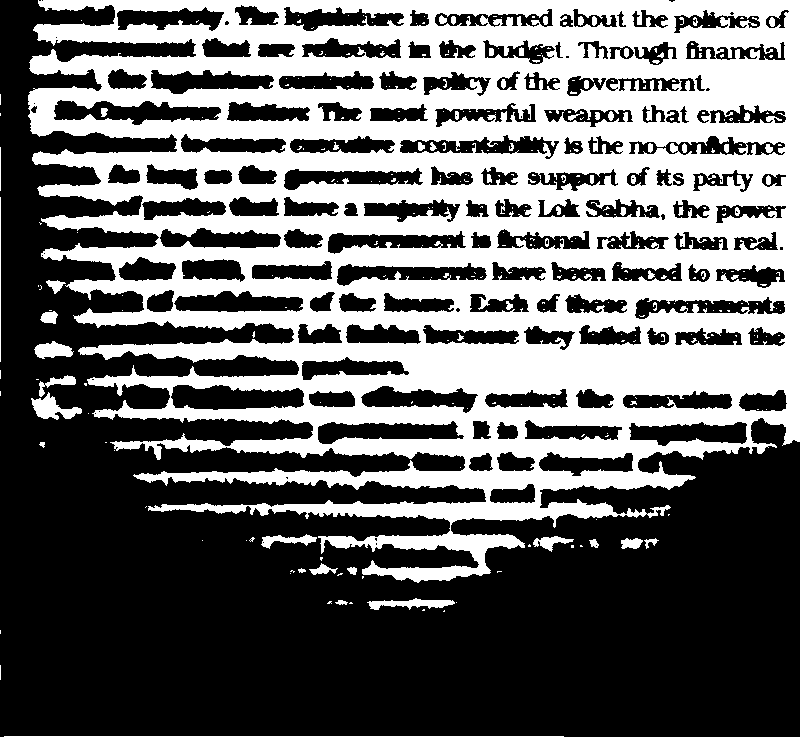 [TOP]
[TOP]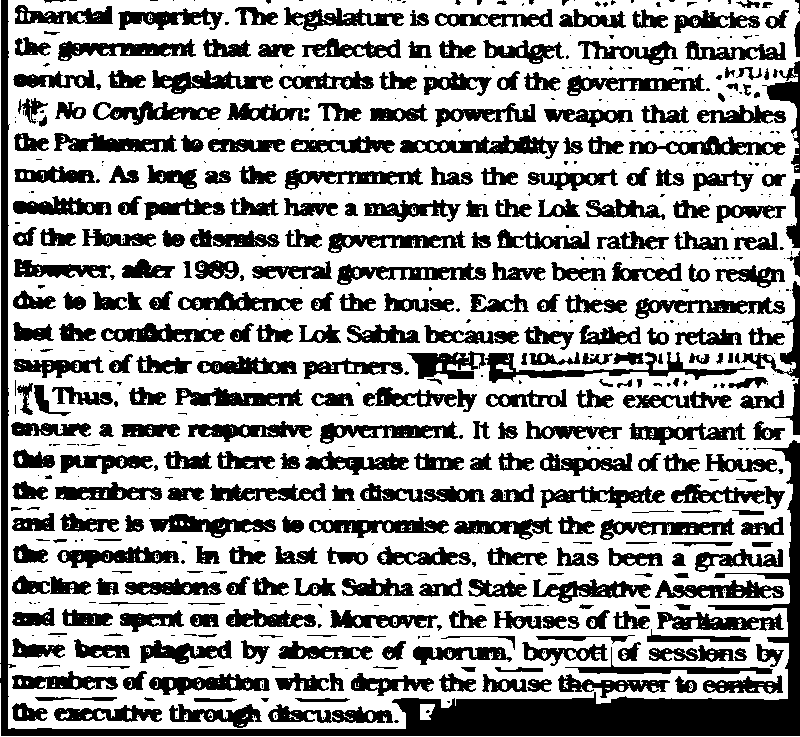 [TOP]
[TOP]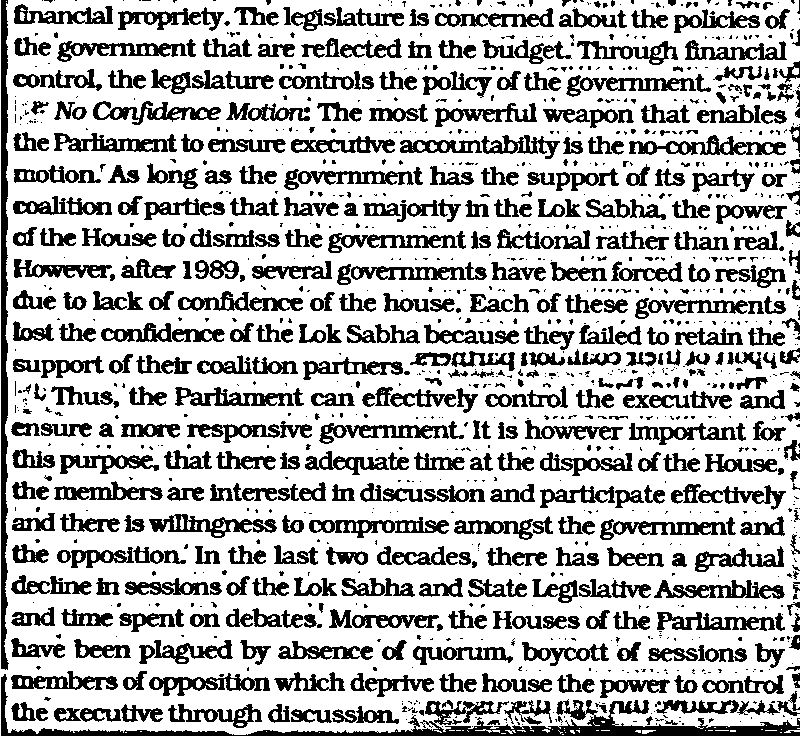 [TOP]
[TOP]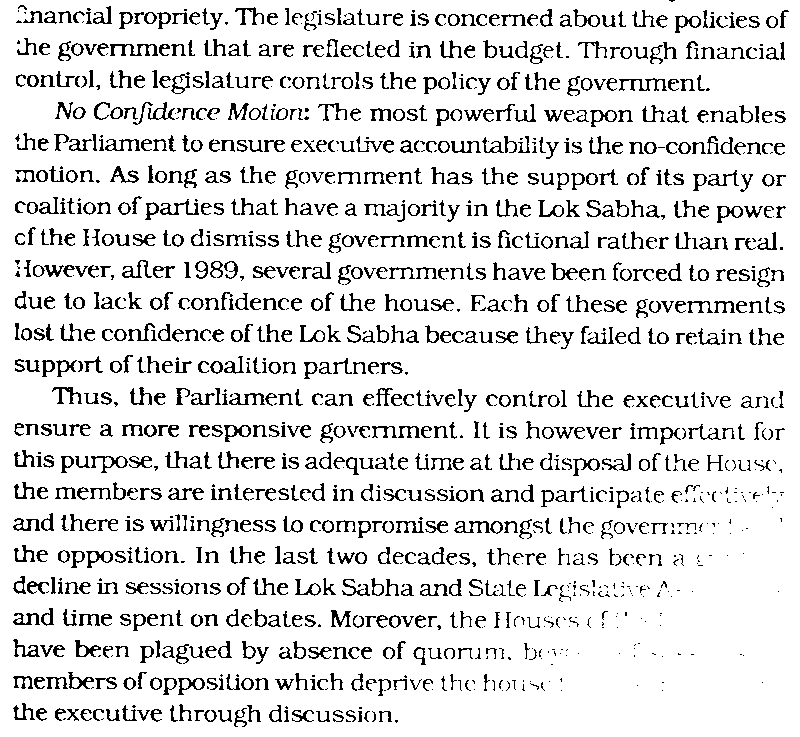 [TOP]
[TOP] [TOP]
[TOP]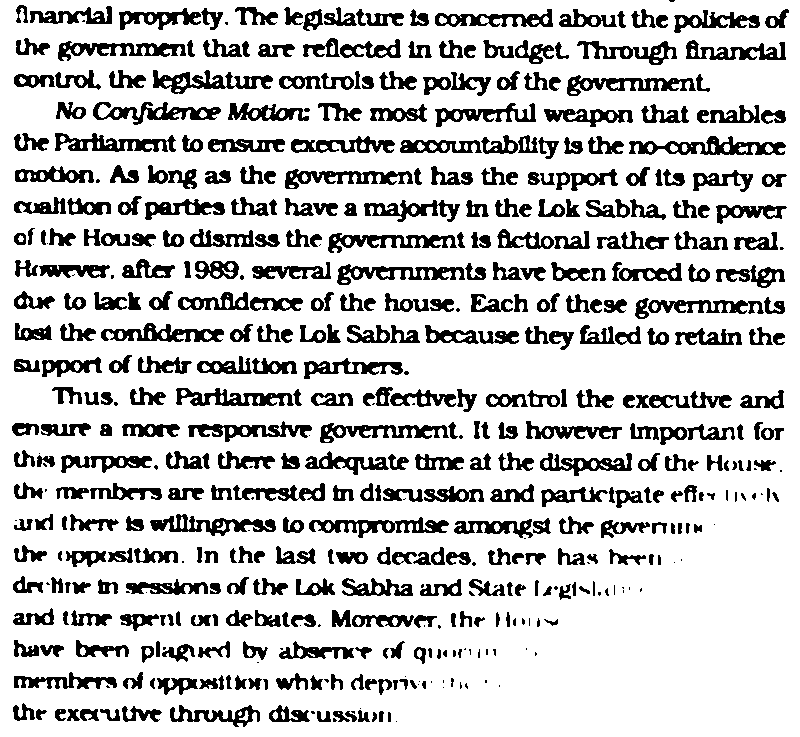 [TOP]
[TOP]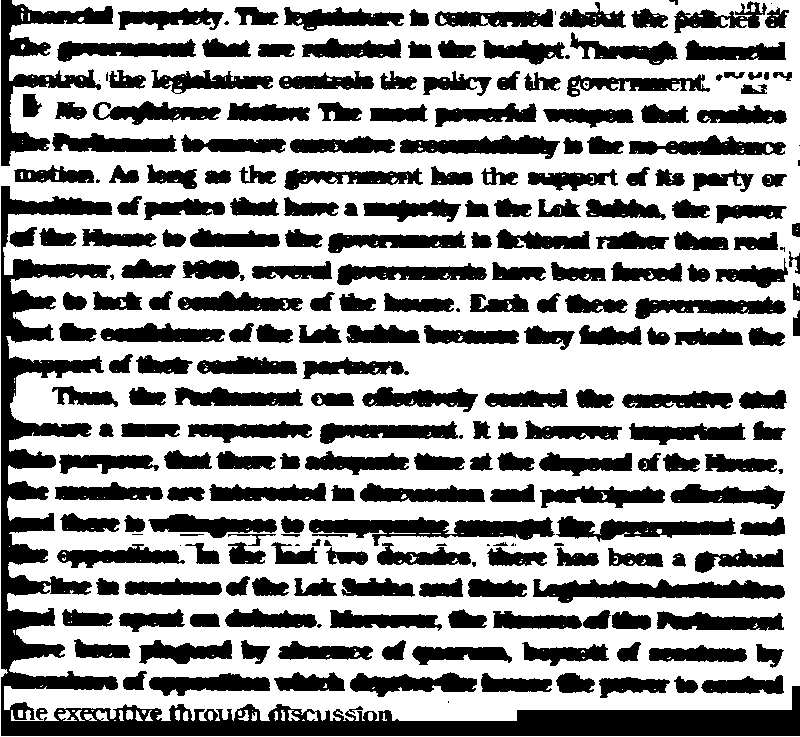 [TOP]
[TOP]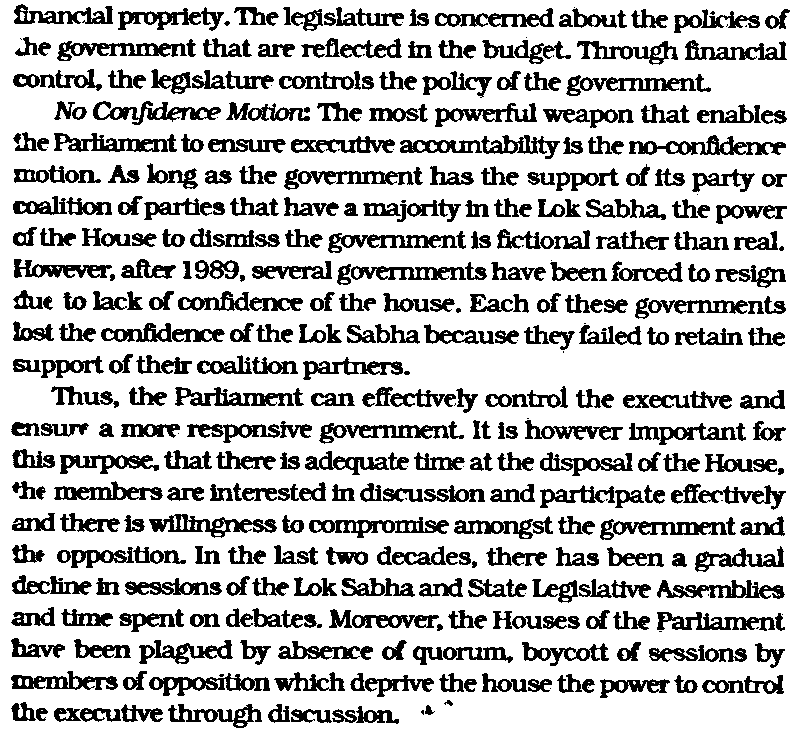 [TOP]
[TOP]